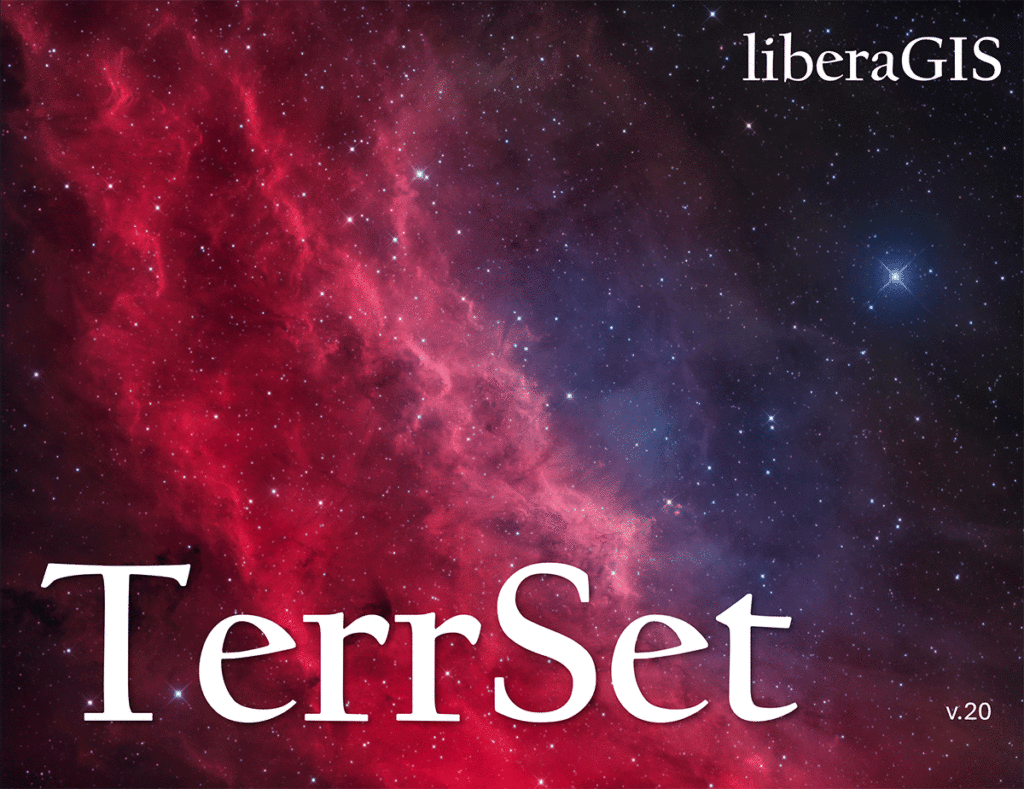Clark Center for Geospatial Analytics to offer free version of TerrSet/IDRISI software starting Dec. 2
Clark Labs’ TerrSet/IDRISI software has been used by scientists for nearly 40 years to monitor and model the earth system, including the analysis of climate change impacts and projecting future land cover change and its impacts on biodiversity. Now, for the first time, TerrSet/IDRISI will be offered free as an open-access version, starting Dec. 2.
Clark Labs’ recent merger with the new Clark Center for Geospatial Analytics (Clark CGA) presented the opportunity to make TerrSet/IDRISI more widely available, according to Ron Eastman, professor emeritus of geography and former director of Clark Labs. He serves as a principal investigator and senior research scientist at the new center.
“This new, free version of TerrSet/IDRISI is the realization of a 37-year dream to make the software accessible to everyone, everywhere,” Eastman says.
Clark Labs originally released IDRISI, the first GIS software developed for a microcomputer platform, in 1987.
 “We sought to meet the needs of scholars in the developing world,” Eastman says. “Our goal was to provide an accessible system that could perform professional-level analyses with a minimum of computer resources. This required a special focus on algorithms that could function in a low-RAM environment and would require no more resources than those typically available on home and office microcomputers.”
“We sought to meet the needs of scholars in the developing world,” Eastman says. “Our goal was to provide an accessible system that could perform professional-level analyses with a minimum of computer resources. This required a special focus on algorithms that could function in a low-RAM environment and would require no more resources than those typically available on home and office microcomputers.”
Over the years, TerrSet/IDRISI has been licensed for more than 100,000 installations in virtually every country. Many Clark faculty have also relied on TerrSet/IDRISI software for their research and to train undergraduate and graduate students in geographic information science (GIS).
The new version of TerrSet/IDRISI, called liberaGIS, will include:
- An improved Land Change Modeler tool with support for Jurisdictional and Nested REDD (JNR), a framework that helps governments protect and manage forests and mitigate the impacts of climate change. REDD stands for “reducing emissions from deforestation and forest degradation.” Clark Labs developed these tools for Verra, the leading standards organization for the conduct of REDD projects.
- In the Earth Trends Modeler, a new tool for climate teleconnection analysis, which is used to identify recurrent climate patterns over wide spans of the earth that are generally obscured by short-term variability (El Niño and La Niña, the periodic warming and cooling of the central and eastern Pacific, are well-known examples that lead to dramatic weather changes worldwide, but many others exist).
- A major suite of tools for raster editing. Satellite images and many environmental data sets are best stored as raster images – fine numeric matrices that can be displayed as colored pixels on digital displays. Maps created from satellite images often need manual editing. Based on the experience gained from 10 years of mapping shrimp aquaculture and its impacts on mangroves in the tropics for the Gordon and Betty Moore Foundation, Clark Labs has developed a suite of special tools for facilitating the process.
The new version also will be streamlined by removing components that relied on external programs that are no longer supported by their original developers. These include:
- The deprecated MAGICC/SCENGEN 5.3 tools from the National Center for Atmospheric Research originally developed for the Intergovernmental Panel on Climate Change’s fourth climate assessment.
- The U.N. Food and Agriculture Organization’s standalone ECOCROP database of information on plant characteristics and crop environmental requirements, now replaced with an online tool. Because of this and the previous point, the Climate Change Adaptation Modeler will be removed after moving some components to the Habitat and Biodiversity Modeler.
- The Ecosystem Services Modeler, based on the InVEST toolset from the Natural Capital Group will also be removed. Newer open-source and freely available tools are now directly available from that group and work well with TerrSet/IDRISI.
Leading up to the free licenses available on Dec. 2, TerrSet will be sold at discounted rates:
- Starting Aug. 28, all licenses and renewals will be 25% off.
- Starting Oct. 1, all licenses and renewals will be 50% off. Discounts for low-income countries, organizational pricing, and student starter licenses will end.
- Starting Nov. 1, all licenses and renewals will be 75% off.
“With this 20th release, TerrSet/IDRISI will finally be set free,” Eastman says. “Accordingly, we are calling this edition liberaGIS.”
The name is derived from the word liberagis in Esperanto, the international auxiliary language created in 1887, and means “liberated, set free,” he says.
“We are excited to be able to offer TerrSet for free to the community” says Hamed Alemohammad, director of Clark CGA and associate professor of geography. “Release of TerrSet liberaGIS is a pivotal point for the geospatial community, and the start of a new chapter at Clark CGA to empower geospatial applications in conservation, land change modeling, and climate change adaption areas with free and open-access software.”


